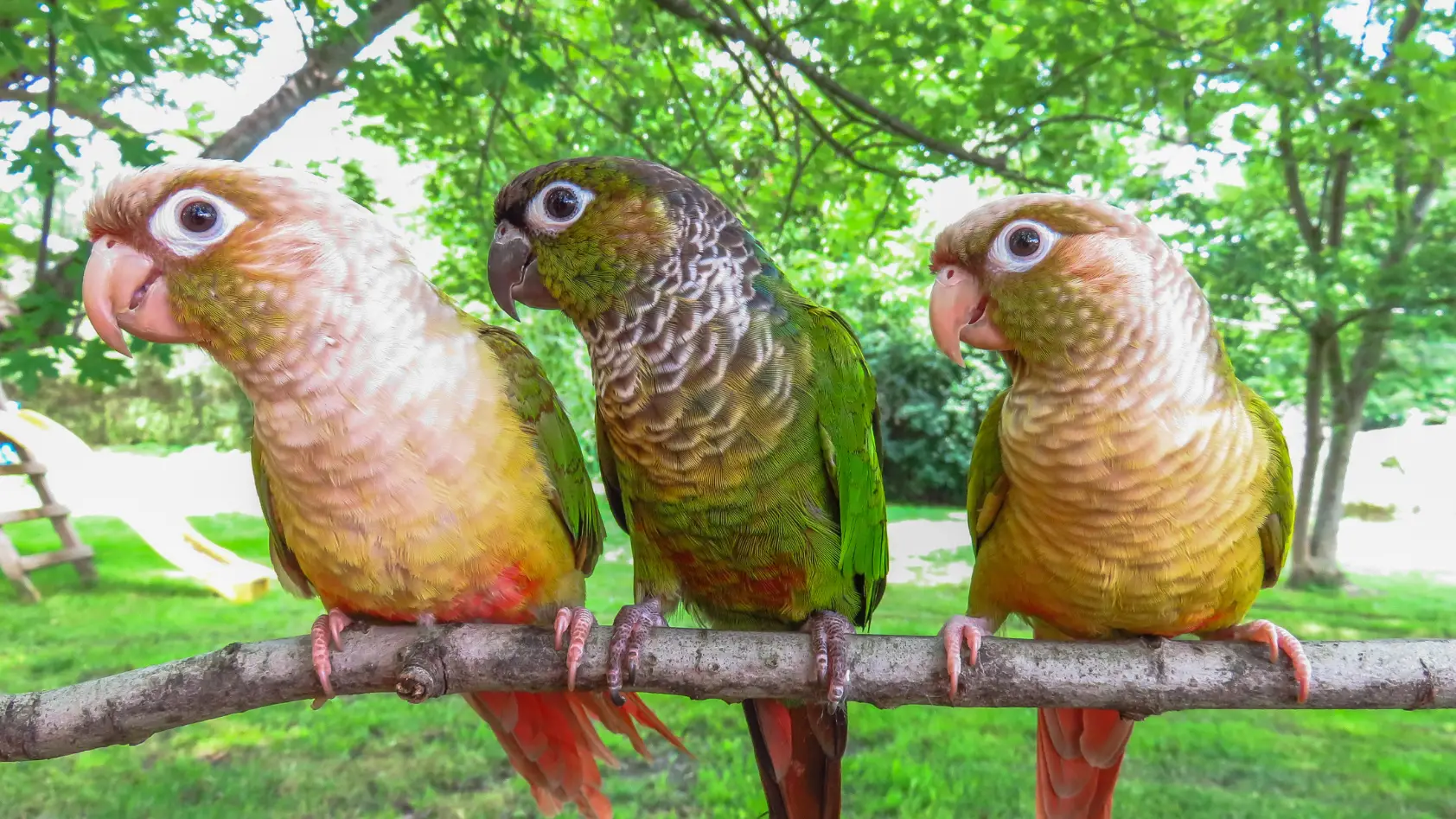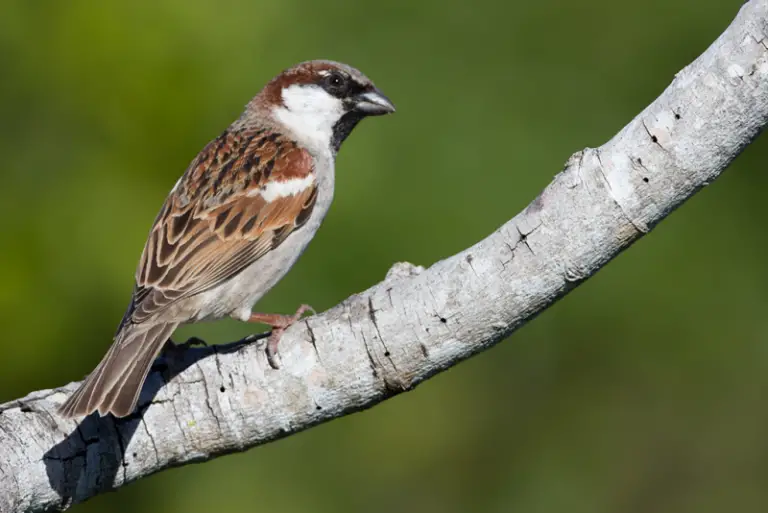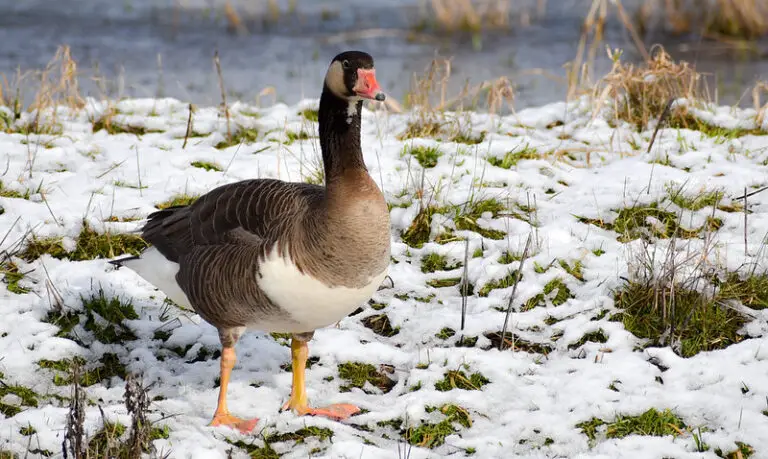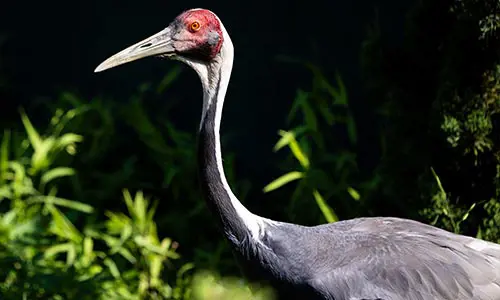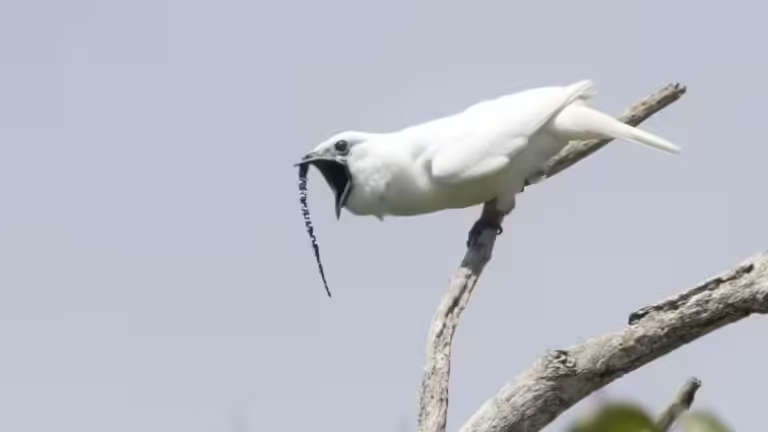Understanding Green Cheek Conure Price: Get insights into the pricing of Green Cheek Conures, a popular and playful pet bird. Learn about the factors affecting their price, such as color mutations and age, to determine the right budget for bringing home a charming feathered companion.
If you’ve ever considered welcoming a feathered friend into your home, the Green Cheek Conure might just be the perfect choice for you. With its small size, remarkable intelligence, and captivating beauty, the Green Cheek Conure has endeared itself to bird enthusiasts worldwide. In this comprehensive guide, we’ll explore everything you need to know about these charming birds, from their initial costs to long-term care, ensuring you’re well-prepared to provide a happy and healthy life for your new avian companion.
Introduction to Green Cheek Conures
The Green Cheek Conure, known for its friendly disposition and relative quietness compared to other parrot species, is an excellent choice for families seeking an affectionate and entertaining pet. These delightful birds are known for their ability to learn tricks and words, and they love to cuddle with their human companions. But before bringing one home, it’s crucial to understand the costs and responsibilities associated with Green Cheek Conure ownership.
Initial Costs of Owning a Green Cheek Conure
Bird Acquisition
Price Range: $120 – $600
The initial cost of acquiring a Green Cheek Conure varies depending on factors such as the breeder’s reputation, the bird’s age, coloration, and geographical location. On average, you can expect to pay between $120 and $600 for your feathered friend. Keep in mind that Green Cheek Conures thrive when paired with a companion of the same species, as they may not get along with other bird breeds.
Cage Setup
Price Range: $50 – $1,300
Investing in a suitable cage is essential for your Green Cheek Conure’s well-being. Prices for birdcages vary widely, ranging from as low as $50 to as high as $1,300. While cheaper cages are available, it’s crucial to prioritize your bird’s comfort and safety by providing ample space, perches, toys, and essential accessories.
Habitat and Supplies
Estimated Cost: Varies
In addition to the cage, you’ll need to budget for various supplies, including perches, toys, food and water bowls, litter trays, and food. The total cost depends on your choices and preferences, but it’s essential to create an environment that is enriching and stimulating for your bird.
Ways to Acquire a Green Cheek Conure
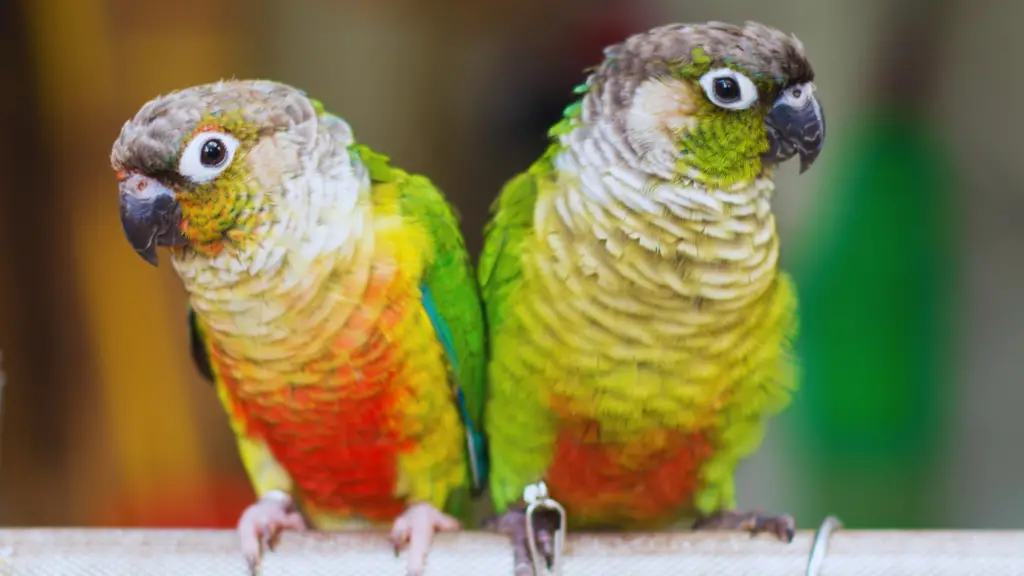
Free Adoption
Price: Varies
Some organizations or individuals may offer Green Cheek Conures for free adoption. While this can be a cost-effective option, be cautious, as these birds may come with behavioral issues. Training and potential expenses for behavior correction may be necessary.
Adoption from a Shelter
Price Range: $125 – $300
Shelters often have Green Cheek Conures available for adoption at a reasonable cost, typically ranging from $125 to $300. Before adopting, ensure you spend time with the bird to assess its suitability for your family.
Purchasing from a Breeder
Price Range: $120 – $600
Buying from a reputable breeder offers the advantage of well-behaved birds with known histories. Prices vary based on factors such as age, coloration, and breeder reputation. Additionally, breeders can provide valuable information about the bird’s lineage and any genetic concerns.
Ongoing Monthly Costs
Food and Treats
Estimated Cost: $10 – $20 per month
Green Cheek Conures require a balanced diet of seeds, pellets, fruits, and vegetables. To ensure their health, consider spending around $10 to $20 per month on high-quality bird food. Offering a variety of fresh foods will keep your bird engaged and well-nourished.
Grooming and Hygiene
Estimated Cost: $5 – $20 per month
Maintaining your bird’s hygiene involves providing access to baths or regular spraying, keeping the cage clean, and trimming nails. Allocate a monthly budget of $5 to $20 to cover grooming and hygiene expenses.
Health Care
Estimated Cost: $30 – $100 per month
Green Cheek Conures are relatively affordable in terms of healthcare costs. Regular maintenance, including clean habitat conditions, a balanced diet, and preventative treatments for lice and worms, can help minimize veterinary expenses. Budgeting around $30 to $100 per month for potential healthcare needs is advisable.
Pet Insurance
Estimated Cost: $6 – $15 per month
Consider pet insurance to offset unexpected medical costs. Various insurance plans are available, covering different aspects of your bird’s care. Research thoroughly to find the best insurance option for your Green Cheek Conure.
Environmental Maintenance
Estimated Cost: $10 – $40 per month
Maintaining a clean and stimulating environment for your bird is vital. Budget for cleaning supplies, habitat disinfection, toy replacements, and cage repairs, amounting to approximately $10 to $40 per month.
Entertainment
Estimated Cost: $20 – $35 per month
Keep your Green Cheek Conure mentally and physically engaged with a variety of toys and playtime. Allocating $20 to $35 per month for entertainment expenses ensures a happy and stimulated bird.
Total Annual Cost of Owning a Green Cheek Conure
Estimated Range: $300 – $1,800 per year
The annual cost of Green Cheek Conure ownership can vary widely, depending on factors such as food expenses, veterinary care, and the purchase of toys and accessories. On average, you can expect to spend between $300 and $1,800 annually.
Additional Costs to Consider
In addition to regular monthly and annual expenses, it’s essential to plan for potential additional costs. These may include emergency medical care, travel arrangements, and repairs or replacements for cage and habitat damage.
Owning a Green Cheek Conure on a Budget
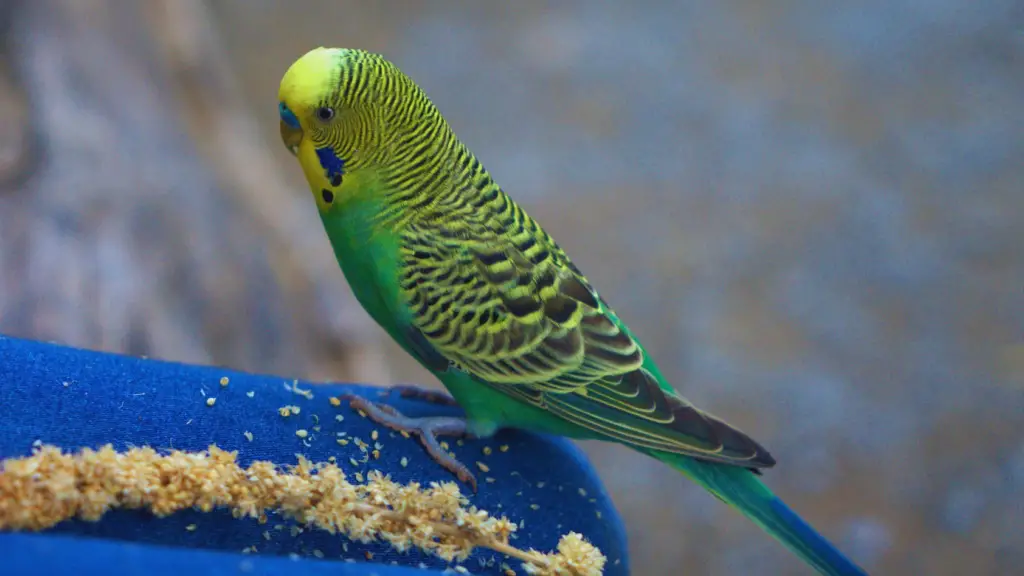
Green Cheek Conures are among the more affordable pet birds to care for. By making informed choices and prioritizing your bird’s well-being, you can reduce costs. Consider bulk purchases for food, minimize toy expenses by spending more quality time with your pet, and maintain a clean and healthy habitat to prevent frequent vet visits.
Saving Money on Green Cheek Conures
To further economize, explore opportunities to buy bird supplies in bulk at wholesale prices. Subscription services for pet products often offer discounts and promotions, helping you save on essential supplies.
Conclusion
Owning a Green Cheek Conure can be a rewarding experience, provided you’re well-prepared for the associated costs and responsibilities. By budgeting for initial expenses, monthly needs, and potential emergencies, you can ensure your feathered friend enjoys a long, healthy, and happy life in your care. Research and planning are key to becoming a responsible and loving owner of these charming and intelligent birds. Welcome your Green Cheek Conure into your home with confidence, knowing you have all the information you need for a successful journey into pet ownership.
Green Cheek Conure Price: FAQs
1. How much does a Green Cheek Conure cost?
The Green Cheek Conure price can vary depending on various factors such as the bird’s age, mutation, and where you acquire it from. On average, you can expect to pay around $200 to $1000 for a Green Cheek Conure. However, rare mutations or specific color variations like cinnamon or turquoise may cost more.
2. What are the additional costs involved in owning a Green Cheek Conure?
Owning a Green Cheek Conure comes with additional costs besides the initial purchase price. You should consider the cost of a suitable cage, toys, perches, vet visits, and regular grooming. Additionally, you may choose to purchase pet insurance to cover any unexpected veterinary care expenses.
3. How much does it cost to own a Green Cheek Conure per month?
The monthly cost of owning a Green Cheek Conure can vary depending on your location and the specific needs of your bird. On average, you can expect to spend around $100 to $1000 per month on food, toys, and other supplies.
4. What kind of diet do Green Cheek Conures require?
Green Cheek Conures require a balanced diet consisting of high-quality pellets, fresh fruits, and vegetables. It’s important to provide them with a variety of foods to ensure proper nutrition. Avoid feeding them foods that are toxic to birds, such as avocado and chocolate.
5. How often does a Green Cheek Conure require veterinary care?
Regular veterinary care is essential for maintaining the health of your Green Cheek Conure. They should have an initial vet check-up when you bring them home and annual check-ups thereafter. It’s best to consult with a knowledgeable avian vet for specific care recommendations.
6. Can I adopt a Green Cheek Conure?
Yes, you can adopt a Green Cheek Conure from bird rescue organizations, shelters, or private individuals. Adoption fees may vary, but it’s a more affordable option compared to purchasing from a breeder. Keep in mind that adopted birds may require extra care due to their previous environment or history.
7. Why are Green Cheek Conures so expensive?
There are a few key reasons why Green Cheek Conures tend to be more expensive than other parrot species:
- Supply and demand – Green Cheeks are popular pet parrots due to their small size, enjoyable personality, and ability to talk. This increased demand drives up their price.
- Harder to breed – Green Cheeks can be more difficult to breed in captivity than other conure species. It takes experience and optimized conditions to successfully breed them. Fewer offspring lowers supply.
- Long-lived – Green Cheeks have a lifespan of 15-20 years when well cared for. Their long commitment as a family pet adds to their value.
- Color mutations – Rarer color mutations like lutino and pied Green Cheeks command an even higher premium due to their uniqueness.
- Health testing – Reputable breeders perform genetic and health testing on breeding stock, adding to the bird’s price tag but also assuring it’s a healthy pet.
- Quality of care – Parrots hand-raised with extra socialization and foraging enrichment tend to be more costly than cage-raised birds.
So in summary, demand, difficulty to breed, longevity, variants, and standards of care all contribute to Green Cheeks having higher average prices than other parrot types.
8. Are Green Cheek Conures good pets?
Yes, Green Cheek Conures can make great pets for the right owner. Here are some key points about them:
- Friendly personality – Green Cheeks are known for their fun, playful nature. They bond strongly with their owners and enjoy interaction.
- Small size – As one of the smallest conure species, they don’t require an enormous cage. Their size makes them easier to handle than larger parrots.
- Talkers – Many Green Cheeks learn to talk and mimic words and sounds. The extent of this varies between individual birds.
- Active – They need lots of out-of-cage time to keep them stimulated and engaged. A Green Cheek may not be suitable for very busy families.
- Nosy – They love exploring and may get into things they shouldn’t if not supervised. Cage toys and foraging help curb unwanted behaviors.
- Flock-oriented – Green Cheeks do best with at least an hour of human interaction per day plus companionship of other birds if the owner is gone.
- Noisy – Their loud screeches can disturb neighbors without adequate noise muffling in cages and rooms.
Overall, Green Cheeks make good pets if their social, exercise and noise needs can be appropriately met. Their outgoing personalities more than make up for their loud calls when adequately stimulated and cared for properly.
9. What is the lifespan of a green conure?
The average lifespan of a green cheek conure is 15-20 years when properly cared for. Here are some more details on their lifespans:
- In captivity with excellent nutrition, health care and living conditions, green cheeks can often live to be 20-25 years old or occasionally even longer.
- Factors like diet, environmental stress, disease and genetics all play a role in longevity. Birds from reputable breeders with healthy ancestry tend to live longer on average.
- Proper diet is key – a nutritious pellet or seed mix with plenty of fresh fruits and vegetables promotes health and a longer lifespan.
- Good hygiene helps prevent disease transmission. Annual checkups catch any health issues early.
- Stimulation through toys, companionship and attention supports mental and physical well-being.
- Breeders report average lifespans of 15-18 years, while some pet green cheeks may live 12-15 years or less depending on living conditions.
- The oldest documented green cheek conure reached 34 years of age, though most do not live that long in captivity.
With quality ongoing care, diet and environment, green cheeks have the potential for long, healthy lives well into their second decade. Proper husbandry helps them achieve their typical 15-20 year lifespan.

